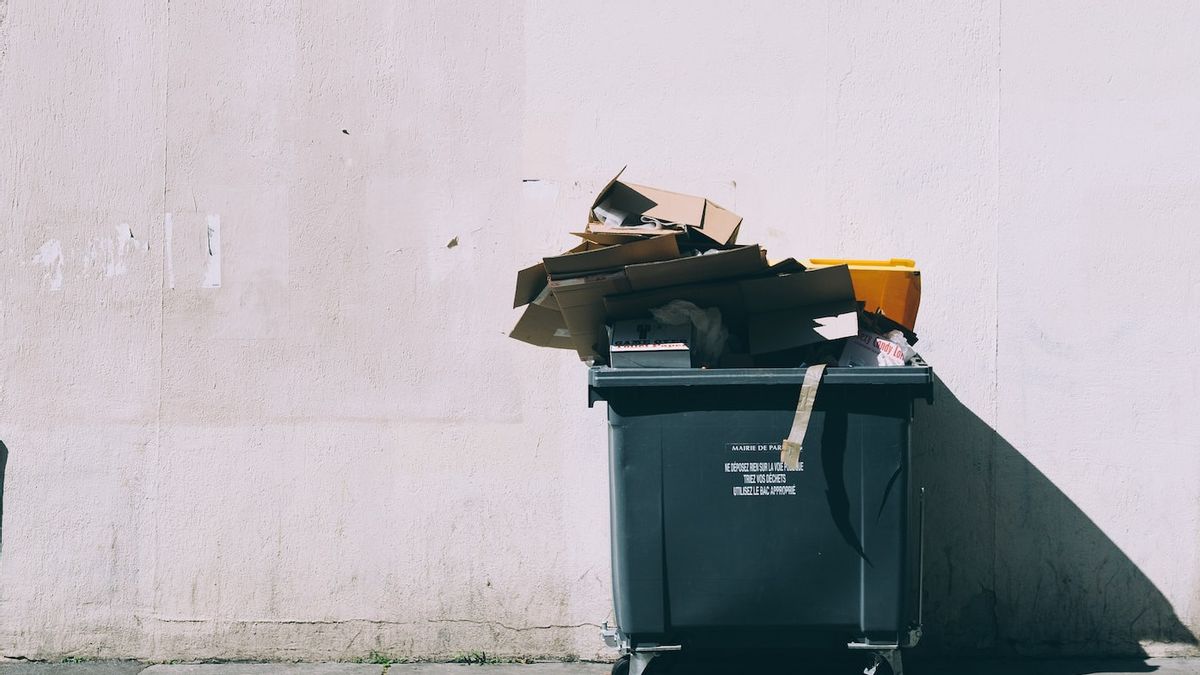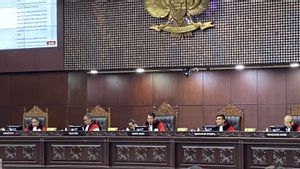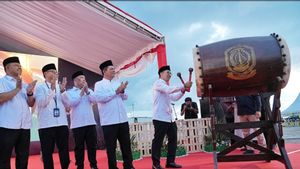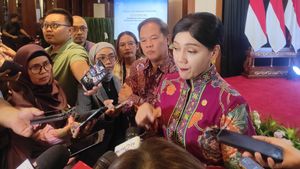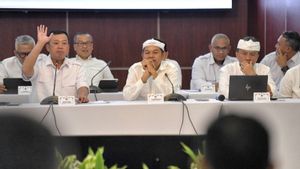JAKARTA - In addition to the energy transition, the Speaker of the House of Representatives, Puan Maharani, assessed that good waste management could be one of the efforts on earth rescue missions. He also asked the Government to increase the green' policy program to overcome the increasingly worrying waste crisis in Indonesia.
"If we want Indonesia to become a developed country, our minds must also progress. Including in terms of waste management," said Puan, Monday, October 23.
As is known, the problem of waste management in Indonesia is still homework for the Government. Such as the Final Disposal Site (TPA) whose volume has exceeded the storage capacity. In addition to causing an unpleasant odor for the environment, poor waste management also has the potential to cause health problems for the community.
For example, at the Pagarsih Waste Disposal Site (TPS), Bandung, West Java, which was overvolume and garbage were scattered onto the streets. The waste accumulation incident also occurred at TPA Cipayung, Depok City, and even garbage transport trucks had to queue up to 8 hours to unload the garbage.
The waste problem also occurred in the Special Region of Yogyakarya (DIY), which forced the local government to close the Piyungan TPA due to overloud or overload. The waste crisis in DIY was also seen by the accumulation of garbage in temporary shelter depots.
The huge accumulation of waste also causes the control of fire disasters at the TPA to be difficult. Not only that, the impact of the fire at the TPA also caused new problems. For example, the fire in the three TPAs that occurred almost at the same time in Denpasar, Bali, made garbage from Denpasar unable to be thrown into the TPA.
اقرأ أيضا:
Most recently, the fire at the Rawa Cat TPA, Tangerang which lasted almost 3 days due to excess volume of waste forced 154 local residents to evacuate. Reflecting on this phenomenon, Puan asked the Government to pay more attention to waste management policies.
There must be strict regulations regarding waste management. It can start from the smallest environment, namely the separation of waste at the household stage which will maximize the problem of waste management," said the first woman who served as Chair of the DPR RI.
"In developed countries, the Government is able to implement a waste separation policy starting from the household level. As in Korea, for example, the public is sensitive to sorting waste according to the category," continued Puan.
In order for the waste sorting policy to be effective, the Government is reminded to consistently provide education to the public. According to Puan, education and socialization to the public must be carried out massively throughout the country.
"And of course it must be accompanied by even regulations. So this waste problem is not only the work of the local government, but also integrated together with the central government," he said.
The problem of garbage that has not been breakthrough by the Government is considered by Puan to have an effect on human survival, both for now and in the future. Because waste problems can threaten the health and sustainability of nature and the environment.
"So it is very important to intensify green policies in the community. Clear and firm regulations from the government are needed so that this movement is truly effective and carried out by the community," said Puan.
Furthermore, the former Coordinating Minister for Human Development and Culture also highlighted the importance of reducing plastic waste. Puan said the Government's firmness on the rules for the use of plastic packaging could support the green' policy for earth safety.
"Reducing plastic waste also contributes to the success of green economy policies. This is because plastic waste is difficult to decompose and causes pollution for land and sea," he explained.
The policy of reducing the use of plastic is still limited in only a few areas. This should be maximized throughout Indonesia by implementing a reuseable or recyclable packaging and pocket policy," continued Puan.
The DPR itself is an institution that prioritizes the green economy movement to fight the climate crisis. The movement, which is named the 'Green DPR', is Puan's initiative, namely reducing the use of plastic and paper in each work unit of the legislative institution.
"We at the DPR have a Green House movement that is a system and practice to support the reduction of plastic waste and materials that are difficult to recycle. This is our commitment in parliament to cultivate the go green movement," said Puan.
"The DPR also supports sustainable development and a green economy through the proposal of the EBT Bill which is a real action in campaigning for awareness of the importance of economic sustainability which prioritizes all forms of environmentally friendly activities," added Bung Karno's grandson.
Puan also encouraged the Government to form a policy so that producers of products need the people to pay attention to the packaging they use. He gave an example of Germany, which has new rules by requiring all products to be packaged in packages that can be reused or recycled.
"We can adopt policies like this. In some countries there are packaged waste banks where the people can get replacement money if they return the product packaging they buy. This helps the waste management process," said Puan.
The English, Chinese, Japanese, Arabic, and French versions are automatically generated by the AI. So there may still be inaccuracies in translating, please always see Indonesian as our main language. (system supported by DigitalSiber.id)
